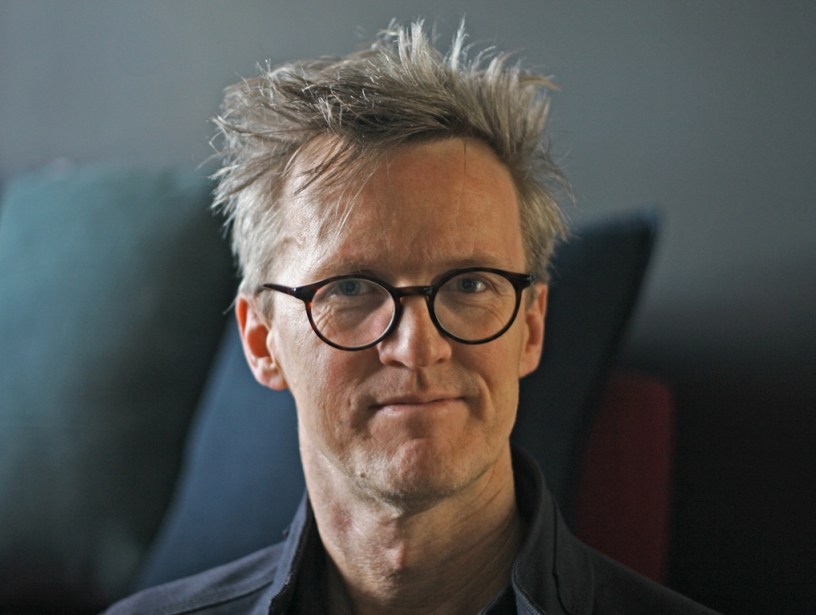Matt Cameron.
For years as a screenwriter Matt Cameron had to get accustomed to a common response from some producers when he handed in scripts.
“Thanks for the script,” he was often told. “Bye-bye, we will let you know when it’s on air.”
That has changed significantly in the past few years as writers are increasingly employed as showrunners or producers, actively involved through to completion.
“The change has been quite swift and profound,” he tells IF. “There are still some old school producers who are really hanging on to the past because the old structure suited them well. They liked going to MIPCOM each year and not have writers in the room for key meetings.
“The best producers we have in this country, and there’s lots, have really embraced the international approach, which is that it makes no sense not to have the writer in the room for the making of the show. I’m really fortunate that all the producers I’m working with are embracing that.”
One of the go-to writers for premium dramas, Cameron has just written one episode of The Commons, an eight-part drama from Playmaker Media which stars Joanne Froggatt (Liar, Downton Abbey) and Damon Herriman.
Commissioned by Stan and created by showrunner Shelley Birse (The Code), the character-driven thriller set in the near future is shooting in Sydney with Jeffrey Walker (Lambs of God, Riot) as the set-up director, working with Rowan Woods and Jen Leacey.
He and Birse worked on the concept, which deals with such themes as climate change and biotechnology, some years ago and he was chuffed when she called to inform him the project had been greenlit. Walker directed the first three Jack Irish telepics which Cameron wrote.
“Shelley came up with a big picture idea that dares to tell a story which is not just domestic, kitchen-sink,” he says.
Now he is penning two episodes of Barons, an international surfing drama for the ABC from Fremantle, Micanical Media’s Michael Lawrence and 2Jons’ John Molloy.
Liz Doran is the showrunner on the eight-part series set in the 1970s, which follows two surfers who become fierce rivals as they create billion-dollar empires, winning and losing themselves along the way.
Enjoying working again with Molloy after they collaborated on the Seven Network miniseries Molly, he says: “The unlikely clash of surfing counter-culture with capitalism in the 1970s and 1980s is great territory for a story. It’s dramatic gold.”
Cameron started out as a comedy writer on such shows as Tonight Live with Steve Vizard, Jimeoin, Full Frontal and The Eric Bana Show Live.
He thanks SeaChange co-creators Andrew Knight and Deb Cox with giving him his first drama credit, writing an episode of the ABC show in 2000.
After contributing to series of up to 23 episodes earlier in his career, he welcomed the shift to short-run dramas, which coincided with a marked rise in production values.
His recent credits include Stan’s Bloom, Foxtel/Netflix’s Secret City and Secret City: Under the Eagle, the ABC’s Jack Irish series and SBS’s Safe Harbour.
Currently he is developing two TV series, one with John Molloy, the other with Seven Studios. He went to Los Angeles last month to pitch both, observing: “It was heartening to see the interest in making Australian shows with international backing. That’s the ideal way to tell our stories.
“The last few things I’ve done which I’ve loved, like Secret City 2, have great budgets in the Australian context but you have to cut corners because the budget is not enough to match what your competitors are doing. It’s about making the next leap so what we are doing can genuinely stand alongside what’s being made elsewhere around the world.”
He hopes Poor Boy, the movie he has adapted from his 2009 stage play, will shoot next year, directed by Guy Pearce and produced by Aquarius Films’ Angie Fielder and Polly Staniford.
Pearce, who starred in the play, will take the title role in the paranormal mystery-drama of a boy who announces to his family on his seventh birthday that he is a stranger named Danny – a grown man who died seven years earlier.
“The heart of the story is the same but the film will be much more intimate and personal than the play,” he says. “Guy has been very brutal in the best possible way about draining any elements of the script that felt too theatrical or not screen-real.
“It’s a very universal story which taps into existential notions of what it is that might be beyond death for all us. It’s about grief and love and families and loss.”


